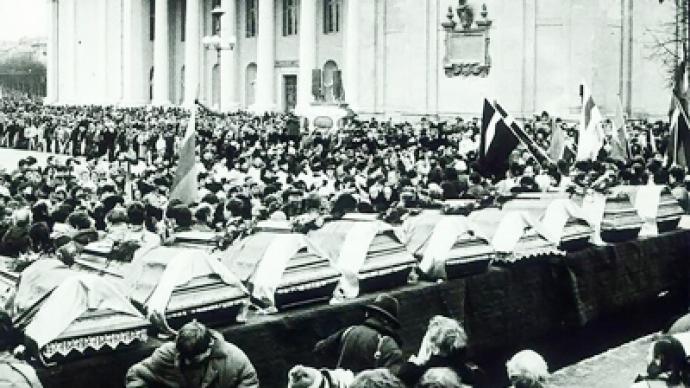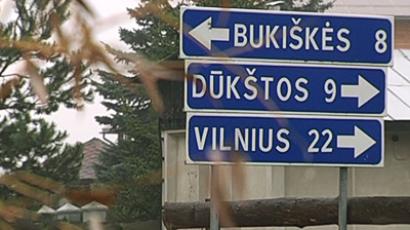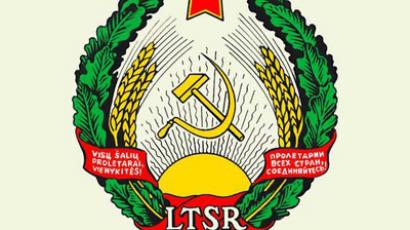Lithuanian politician facing trial for questioning official history

A bitter row over freedom of speech has broken out in Lithuania as a local politician faces jail for his views on a massacre in the country's capital 20 years ago.
The official account is that in January 1991, 14 people were killed in shootings by Soviet troops. The incident sparked international support for the demonstrators. However, one local politician now faces a possible jail sentence for disagreeing with the official version of events and saying it was orchestrated by Lithuanians.Algirdas Paleckis is a member of the Vilnius city council and says Soviet soldiers were not responsible. “I am basing my opinion on the witnesses and on a book which was published by the former head of the national security committee,” said Paleckis. “He wrote that from this tower, representatives of the Lithuanian authorities were shooting down into the crowd. And other witnesses who I know, who live in the area, pointed to those houses on the roofs of which there were people shooting.”Fresh opinions on historical events are nothing unusual. Some are based on newly discovered evidence, others merely conspiracy theories. What is different about Paleckis' argument is that it could land him in jail.“I'm facing two years in prison; I may receive a fine or up to two years in prison. I think this is absurd in terms of human rights and freedom of opinion,” argued Paleckis.Absurd or not, it is the law in Lithuania. “The Lithuanian Penal Code provides for criminal responsibility for public negation of genocide, crimes against humanity or war crimes,” said Gintautas Stalnionis, a spokesman for Vilnius Regional Prosecutor’s Office. “Persons who belittle these crimes or mock victims should be held responsible. The 1991 aggression against Lithuania and its citizens falls under the definition of a war crime.”As an elected official, Paleckis is immune from prosecution. However, he has waived this right and is prepared to stand trial.Local historians question Paleckis' sources and back the official version of events. “On the one hand, there were civilians who wanted self-determination; on the other hand, there was military might,” said Ceslovas Laurinavicius, a professor at the Lithuanian Institute of History.“In my assessment, the events of January 1991 were an attempt to solve a problem with the use of force that claimed innocent lives,” he said.But should questioning history bring with it a criminal investigation?“I don’t think that this is a reason for a person to be prosecuted. It’s his personal opinion,” argued Laurinavicius.“The authorities have overreacted, but it’s up to the lawyers to decide,” he added. “It’s a provocation, but it’s based on certain logic. Lithuanian authorities did make attempts to provoke the Soviet authorities and compel them to start solving the Lithuanian issue.”Should he be found guilty by the courts in his native Lithuania, Paleckis says he will appeal to the European Court of Human Rights – an appeal he is convinced will be carried out from a jail cell.History may not agree with the opinion of Paleckis when it comes to the events of January 1991. However, those same historians are unsure whether it is the role of the legal system to determine who can say what about the circumstances of the deaths of 14 people in Vilnius.














